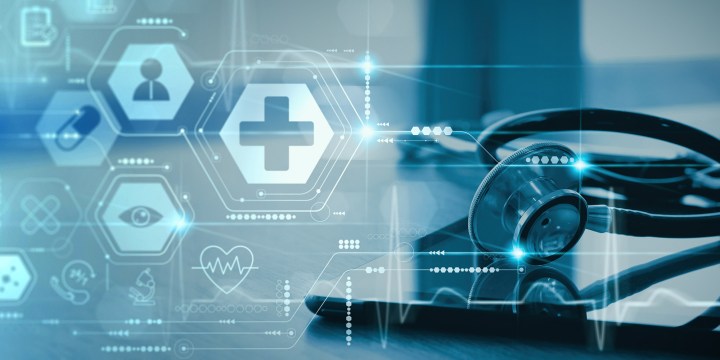WELLBEING OP-ED
Social media can drive Africa’s health revolution

Social media platforms can bring conversations about health closer to the people and make global health a less abstract concept to the ordinary African.
We live in the information age and social media is no longer solely the preserve of bored teenagers. It is reported that 58.4% of the world’s population today (more than four billion people) use social media, while the average daily time spent on digital platforms is 2.5 hours.
Content sharing apps have, over the past decade, quietly nudged traditional media and search engines off the number one spot for information sharing. According to Digital Report 2021, about 36.5% of people use social media for news and current affairs.
Where companies such as Yahoo and Google were once the go-to for internet searches, Gen Z is changing this, with nearly 40% preferring platforms such as TikTok and Instagram, according to Google’s search data.
The face and utility of social media have changed. It’s almost a disadvantage if you’re not on social media now — and global health needs to both embrace and adapt to this reality.
Public awareness
Since the onset of the Covid pandemic in March 2020, we have seen social media’s instrumental role in raising public awareness on health issues. Platforms such as Twitter, Facebook and WhatsApp have been used to issue health-related public service announcements and combat misinformation and disinformation.
It is not by chance that leading global health institutions such as the World Health Organization (WHO) and the Africa Centres for Disease Control and Prevention (Africa CDC) have built a strong social media presence and earned the public’s trust by providing up-to-date, reliable information.
The positive outcomes registered from leveraging social media to inform and educate the public about Covid and other health-related topical issues offer valuable lessons to organisations working in the health and development space in Africa.
Where there have been laudable efforts by African non-government and community-based organisations to be more active on social media, we now see increased opportunities for them to use these platforms in more innovative ways to gain greater visibility, support and engage their target audiences for sustainable impact.
Global health goals
So how can those of us working in a field that often struggles to connect with younger audiences, or hold the interest of key decision-makers in health, leverage this great technological advancement to drive progress toward global health goals? How can we use these readily available platforms to promote public participation to influence change in global health and improve health and development outcomes in a post-pandemic world?
First, we must recognise that advancements in communications technology and the ubiquity of digital devices, deeper internet penetration and a more connected world offer great opportunities for us to collaborate to achieve health milestones on the continent.
Visit Daily Maverick’s home page for more news, analysis and investigations
While internet penetration in Africa still lags behind the rest of the world at about 40%, compared with the global average of about 66%, the continent is steadily catching up, with the number of internet users having grown six-fold in the past decade.
Second, we must appreciate that this growth opens doors for us to use social media platforms for public health advocacy, coalescing like-minded individuals to drive policy change that will put us on the path to realising health for all on the continent.
Social media, the greatest equaliser and convenor in modern history, allows us to circumvent barriers created by geographical boundaries and time zones.
Public participation
By tapping into this valuable resource, we can create countrywide and regional movements to drive public participation in the shaping and implementation of health policy, push for access to essential services and address health injustices (for example, through Amref’s End Vaccine Injustice in Africa campaign), and crowdsource data and feedback in real time to inform efforts to build resilience in health systems, prevent, identify and respond to disease outbreaks.
Popular social media platforms can also be used to share contextually relevant content in local languages to reach last-mile communities, fundraise for health programmes, drum up support for African-led convenings and knowledge-sharing platforms, and strengthen the health workforce by providing access to information at relatively low cost, thereby supporting efforts to increase the number of trained health workers, especially at primary care level.
This is especially critical at a time when the cost of travelling to global health conferences often excludes health practitioners from low- and middle-income countries.
Understanding
By using these platforms to bring conversations about health closer to the people, we can make global health a less abstract concept and a subject of interest to the ordinary African. We can help our people understand what is happening, why it matters and how they can participate to reach the desired outcomes.
This is especially valuable in a culture that still cherishes community over individualism — where the ideals of ubuntu (humanity and compassion) and harambee (collaboration, to pull together) still matter.
To be human is to desire connection, and social media offers those of us in global health ways to listen, engage and build meaningful connections with the communities we aim to serve.
We have already seen how instrumental social media has been in changing Africa’s political landscape — imagine what we could achieve if we unleashed its power to drive the continent’s health revolution. DM
Elizabeth Ntonjira is Global Communications Director of Amref Health Africa.















 Become an Insider
Become an Insider
Comments - Please login in order to comment.